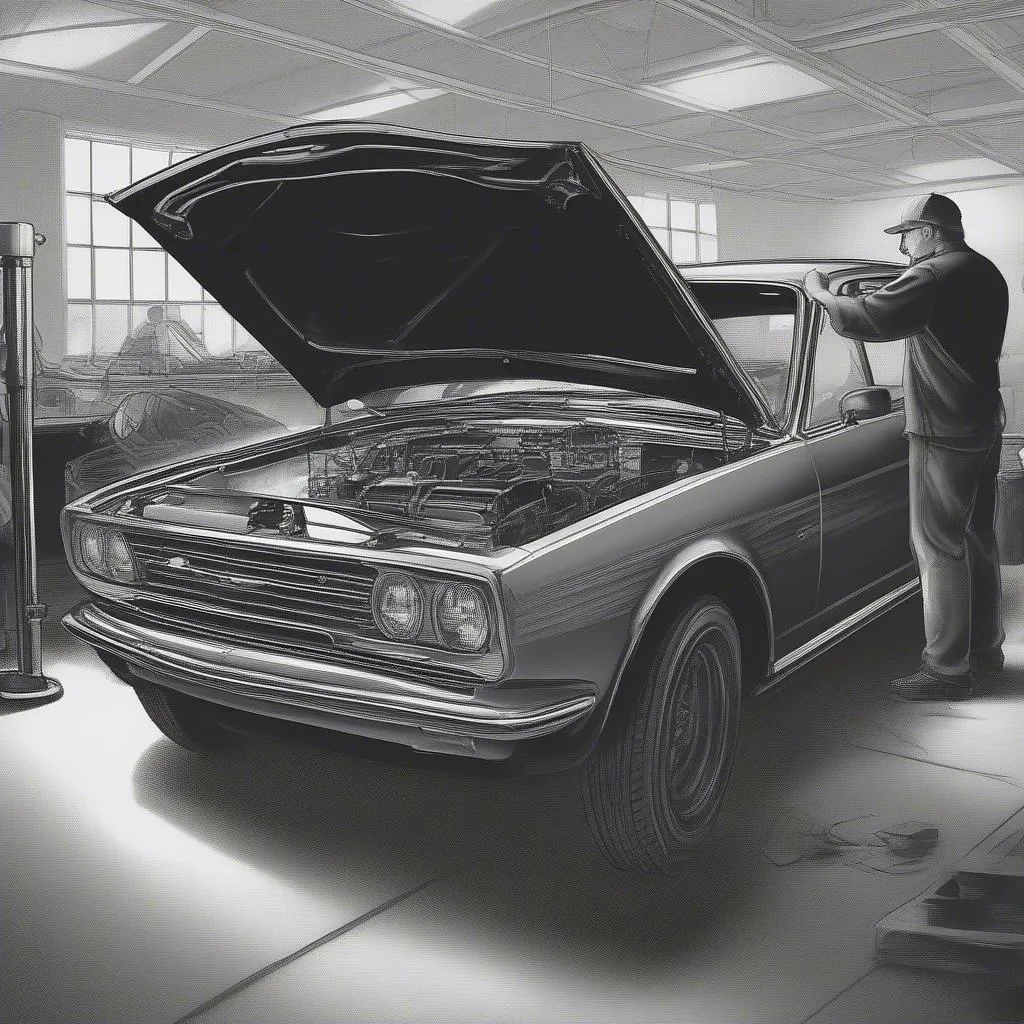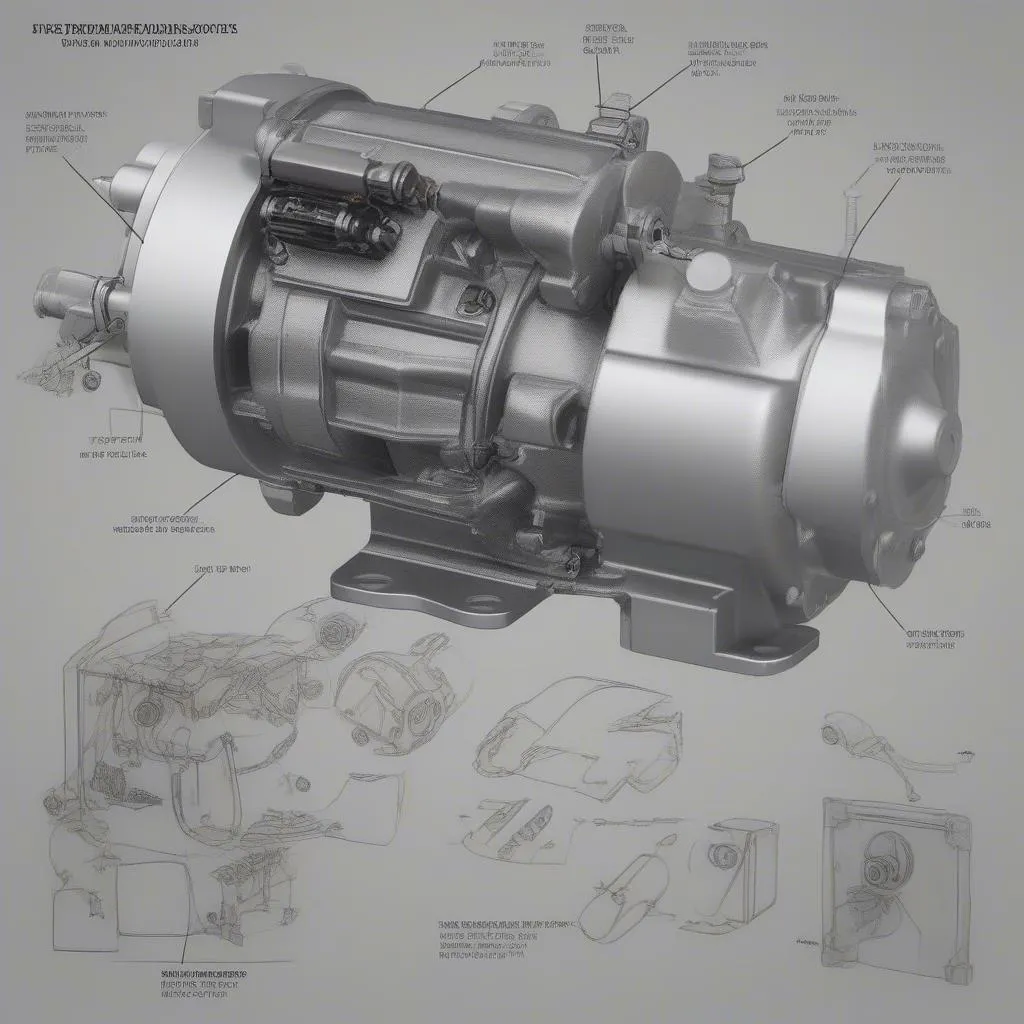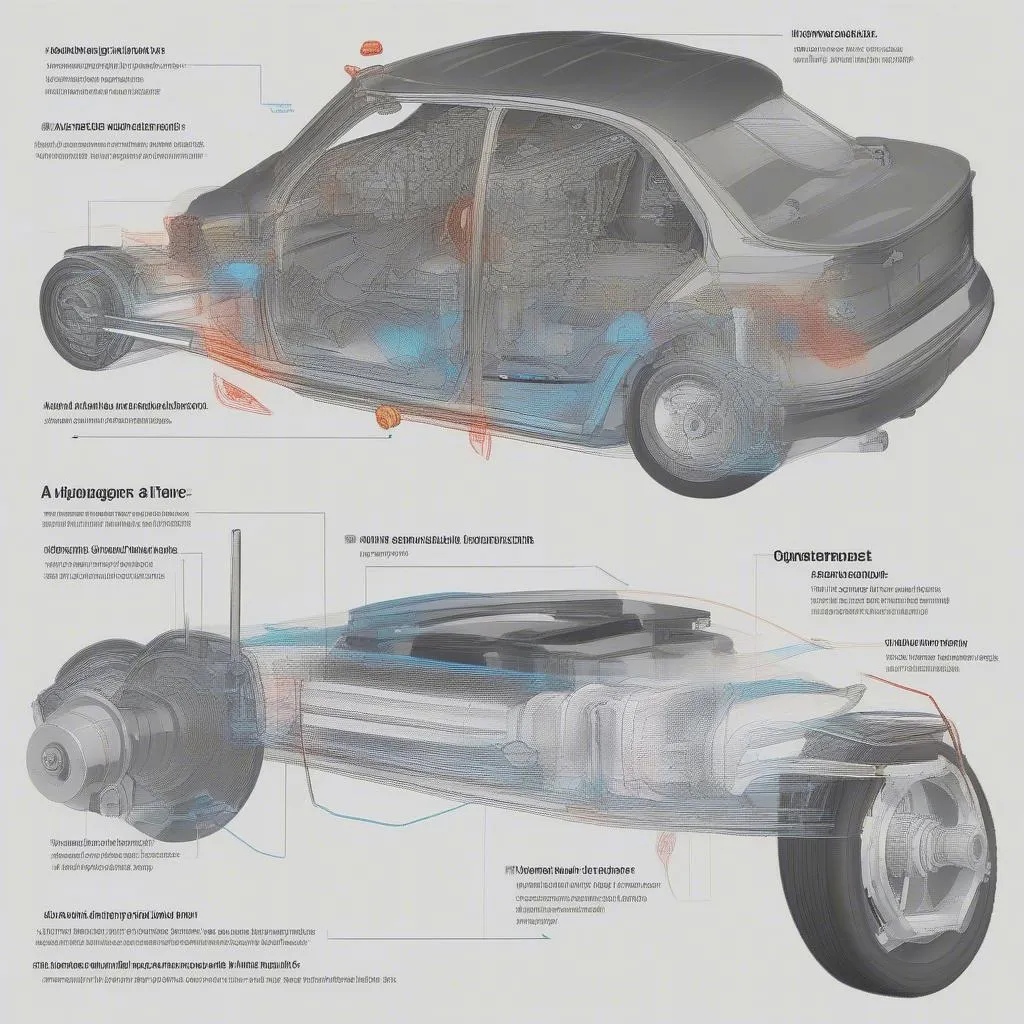Have you ever started your car and heard a loud clunk that makes you jump? It’s a scary sound, and you might be wondering what could be wrong. In this article, we’ll dive into the potential causes of a loud clunk when starting your car, how to diagnose the problem, and how to get it fixed. We’ll also explore some common questions about this issue and how to prevent it from happening again.
What Does a Loud Clunk When Starting a Car Mean?
A loud clunk when starting your car can be caused by a variety of factors. It’s important to understand the potential sources of this noise to pinpoint the issue accurately.
From a Mechanic’s Perspective
A seasoned mechanic like myself will often start by examining the engine’s starting sequence. We check the starter motor, battery, and ignition system for any irregularities. A faulty starter can cause a clunk as it struggles to engage with the flywheel.
From an Automotive Engineering Perspective
From a technical standpoint, this sound can be attributed to a mechanical connection breaking or a component failing. It could be a loose bolt, a worn-out part, or a problem with the transmission.
From an Economic Perspective
Ignoring a loud clunk when starting your car can lead to significant repair costs in the long run. Early diagnosis and repair can prevent major engine damage and save you money on expensive replacements.
Diagnosing the Cause of a Loud Clunk
To determine the root cause of the clunk, you need to examine various components:
The Starter Motor
A faulty starter motor is a common culprit. The starter engages with the flywheel to turn the engine. If it’s damaged, it might make a clunking sound while trying to engage.
The Transmission
A problem with the transmission, particularly in automatic transmissions, can also cause a clunk when starting. This could be due to a worn-out torque converter, a loose transmission mount, or other internal transmission issues.
The Engine Mounts
Engine mounts are responsible for isolating the engine from the rest of the car. A worn-out engine mount can cause the engine to shift during startup, resulting in a loud clunking sound.
The Exhaust System
A loose or broken exhaust system can create a clunking sound when the engine starts. The vibrations from the engine can cause the exhaust components to rattle or clunk.
Troubleshooting Steps
Step 1: Inspect the Starter Motor
Use a mechanic’s stethoscope to listen carefully to the starter motor while the engine is running. If you hear a grinding noise, it could indicate a worn-out starter motor.
Step 2: Check the Transmission Fluid Level
Make sure the transmission fluid level is adequate and the fluid is clean. Low or dirty transmission fluid can contribute to clunking noises.
Step 3: Examine the Engine Mounts
Visually inspect the engine mounts for any cracks, tears, or signs of wear. If you notice any damage, it’s time for a replacement.
Step 4: Inspect the Exhaust System
Check the exhaust system for any loose connections or damaged components. If you find any problems, have them repaired immediately.
Preventing Future Clunks
Regular Maintenance
Regular maintenance, such as oil changes, transmission fluid flushes, and inspections, can help prevent clunking noises from developing.
Avoid Overloading
Overloading your car can put extra stress on the engine and transmission, potentially leading to clunking noises.
Use High-Quality Parts
When replacing parts, always use high-quality, OEM-approved components. This will help ensure that the parts are durable and compatible with your vehicle.
Common Questions and Concerns
Can a loud clunk when starting a car be caused by a bad battery?
While a weak battery can cause issues starting the car, it’s less likely to cause a loud clunking noise. A clunk is usually associated with mechanical components.
What if the clunk only happens occasionally?
If the clunk is intermittent, it could be a sign of a loose connection or a component that’s nearing the end of its lifespan. It’s best to have it diagnosed and repaired to prevent further damage.
Should I drive my car if it’s making a loud clunking noise?
It’s not advisable to continue driving a car with a loud clunking noise. It could be a sign of a serious problem that could worsen if ignored.
Where can I get my car fixed if it has a clunk when starting?
You can take your car to a reputable local mechanic or a dealership. For European vehicles, consider a specialist that’s equipped with Dealer Scanner software, like Tech Car USA.
 Loud Clunk When Starting Car
Loud Clunk When Starting Car
 Starter Motor
Starter Motor
 Transmission
Transmission
Conclusion
A loud clunk when starting your car shouldn’t be ignored. While it could be a minor issue, it’s often an indication of a more serious problem. Prompt diagnosis and repair can prevent costly damage and ensure the safety of your vehicle.
We encourage you to leave a comment below if you have any questions or share your own experiences with this issue. If you need assistance with diagnosing or fixing a loud clunk in your car, please contact us through Whatsapp: +84767531508. Our team of experts is available 24/7 to assist you with your automotive needs.
To learn more about other car issues and solutions, visit our website’s “Car Issues” section or explore our “Automotive Diagnostics” resources.